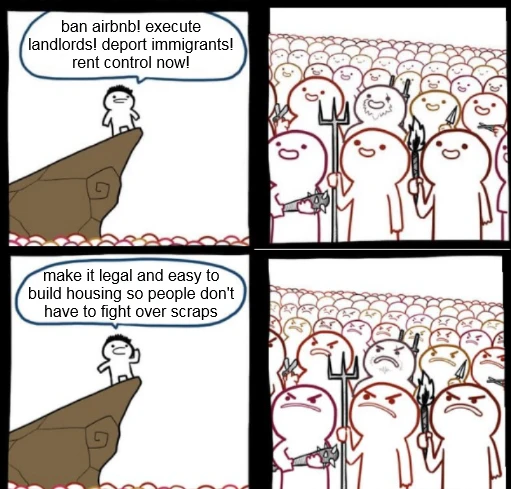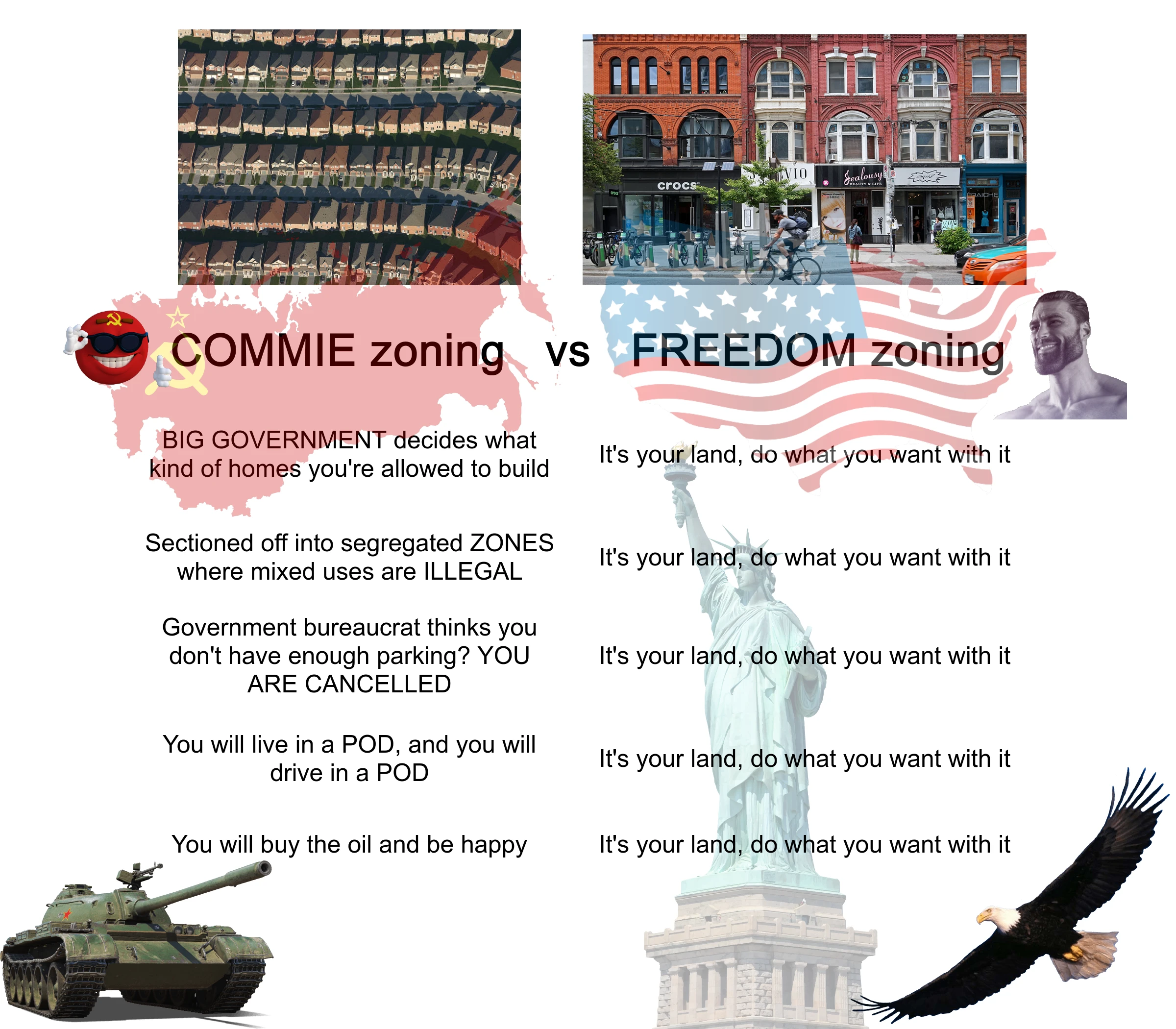I've never met a person actually making that argument, though. I'm certainly not advocating removing building safety codes, only the NIMBY bullshit like exclusionary zoning that was literally designed to keep people of color far away from white people. Even the opening paragraphs of Wikipedia page for the YIMBY movement say it's primarily in favor of removing things like exclusionary zoning and parking minimums:
The YIMBY movement (short for "yes in my back yard") is a pro-housing movement[1] that focuses on encouraging new housing, opposing density limits (such as single-family zoning), and supporting public transportation. It stands in opposition to NIMBY ("not in my back yard") tendencies, which generally oppose most forms of urban development in order to maintain the status quo.[2][3][4]
As a popular organized movement in the United States, the YIMBY movement began in the San Francisco Bay Area in the 2010s amid a housing affordability crisis and has subsequently become a potent political force in local, state, and national[5][6] politics in the United States.[7][8]
The YIMBY position supports increasing the supply of housing within cities where housing costs have escalated to unaffordable levels.[9] They have also supported infrastructure development projects like improving housing development[10] (especially for affordable housing[11] or trailer parks[12]), high-speed rail lines,[13][4] homeless shelters,[14] day cares,[15] schools, universities and colleges,[16][17] bike lanes, and pedestrian safety infrastructure.[3] YIMBYs often seek rezoning that would allow denser housing to be produced or the repurposing of obsolete buildings, such as shopping malls, into housing.[18][19][20] Cities that have adopted YIMBY policies have seen substantial increase in housing supply and reductions in rent.[21]
The YIMBY movement has supporters across the political spectrum, including left-leaning adherents who believe housing production is a social justice issue, free-market libertarian proponents who think the supply of housing should not be regulated by the government, and environmentalists who believe land use reform will slow down exurban development into natural areas.[22] Some YIMBYs also support efforts to shape growth in the public interest such as transit-oriented development,[23][24] green construction,[25] or expanding the role of public housing. YIMBYs argue cities can be made increasingly affordable and accessible by building more infill housing,[26][27][28]: 1 and that greenhouse gas emissions will be reduced by denser cities.[29]






Market-rate, as a term, just means that it's governed by supply and demand and not externally subsidized. The rest of the text describes how loosening zoning laws spurs housing construction which helps with affordability.
The idea is that, if enough housing gets built, the market rate lowers. For instance, my city Montreal has a lower market rate than, say, San Francisco or Vancouver. Why? Higher supply and lower demand.
Or an even better example: Tokyo. Most populous metro area in the world, but it's also stupidly easy to build apartments and other dense housing by right. The result? The "market rate" for housing in Tokyo is remarkably affordable, even to a minimum wage earner:
https://www.nytimes.com/2023/09/11/opinion/editorials/tokyo-housing.html